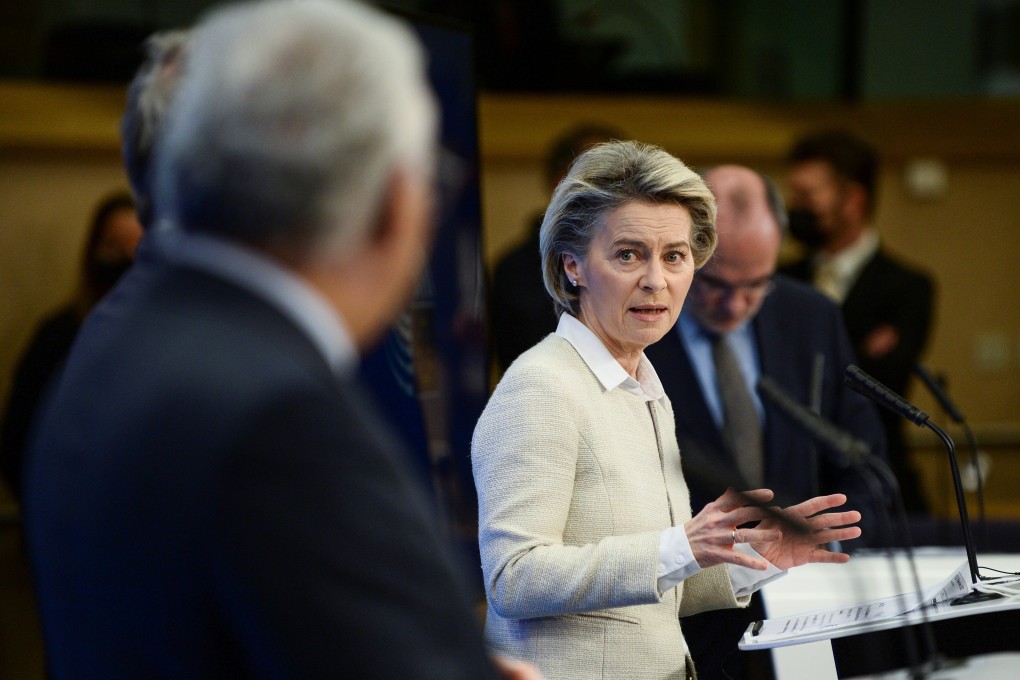Opinion | As US-China rivalry sharpens, the EU must strike a pragmatic balance between its values and interests
- Facing both US exceptionalism and Chinese assertiveness, Europe must vigorously defend its own interests in security and other areas
- And, as a defender of liberal idealism, the EU also wants to uphold the values and norms it historically and culturally shares with the US

“Standing in two boats” is a Chinese idiomatic expression which means having difficulty deciding between two choices. To avoid choosing one and losing the other, one has to hedge, and commitment to either choice is half-hearted. This phrase comes to mind when analysing the EU’s two most important external relations: with China and the US.
Multilateralism is core to both China’s and the EU’s approach to foreign policy. The same could not be said for the US under former president Donald Trump, who favoured unilateralism and isolationism.
However, EU-China relations are facing challenges in several areas: first, on values such as human rights, religious rights and democracy; second, on economic issues such as market access, intellectual property rights and security questions on China’s hi-tech products; third, on macro political issues, such as China’s state capitalism system and its Belt and Road Initiative; and fourth, on Beijing’s increasing role in Europe’s former colonies in Africa and Latin America.
Given these challenges, it is no surprise that the EU identifies China as an economic competitor in the pursuit of technological leadership, and as a “systemic rival” promoting an alternative model of governance.
